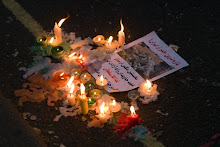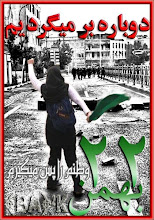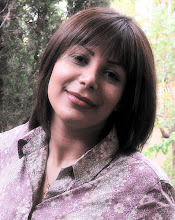A Pilgrim vase - about 30 x 30 cm approx
Some Background
The Ballad of Sister Bergdorf grew out my observation that an unholy coupling had occurred between religion and politics. 'Art discourse' was one of its most obnoxious offspring. I have discussed 'cultural appropriation,' since the 1980s, theorised 'appropriately,' particularly on ceramics, since the 1990s, debated with feminists on transgender politics, among other things, since the late 1990s, and argued with transactivists since the early 2000s. I've held forth on social media - mostly on Facebook - about all of it since 2010. I have even been described as a
'veteran of the culture wars,' by the writer Jo Bartosch so, if that doesn't convince you that I am familiar with this territory, nothing will. It took some time to find my satirical voice - or at least to find a way to express it on pots - but the
jugs that I started making in 2015 gave vent to the first collection of work that deals directly with the increasing madness of politics. Looking back now, I can see the satire clearly enough in
Nightwalker, (2014,) and there are probably hints before that.
About the politics
When politics walked through the looking glass and the Labour Party appointed Munroe Bergdorf, a transwoman, as their advisor on 'LGBT' issues, it was time to respond. Bergdorf isn't gay. Transgender isn't gay - it isn't about who you love, it's about how you see yourself. Bergdorf has had vast amounts of radical and cosmetic surgery to make her body resemble an idealised, porn-woman. 'She' lives as she imagines a woman might, but she is not female - or as we used to say, 'a woman.' Her sex is male, consistent with being what we used to call 'a man.' Nonetheless she - yes I do use that term for her because I've grown used to it and do not wish to have my pronouns policed by purists any more than I do by transactivists - she opines on feminism, shamelessly lecturing women on how to do feminism better, and is now lecturing anyone who will listen on the matter of menstrual periods. This is someone who grew up a boy and has never had a period in her life. This is where we find ourselves: MtF transexual women claiming to have experiential knowledge of menstruation simply because they call themselves women and choose to ignore the fact they are biologically male. Their notion of sex (the noun not the verb,) is that it is based on faith - like religion - not on biological material reality. Put simply, Transactivists and their institutions, Stonewall and many others, have conflated sex and gender and sought to impose their beliefs on the entire population. Volumes of analysis has been written on this, so I will not add more. The redoubtable Allison Bailey, from LGB Alliance, covers most of the main points in her statement which was redacted from her crowdjustice page - as if to prove the very point the statement makes - but reproduced with permission by
A Woman's Place UK. A good ten volumes would now be required to cover all the issues adequately, and this is just a blog post, but it should make my own position clear. This piece I wrote for
'Howie's Corner,' for International Women's Day, may clarify some further issues if needed.
About the pot
The Ballad of Sister Bergdorf is only the beginning. There will have to be more because the madness has spun right out of control but, at the time I made this, I was still finding a way to convert words like these into pots. I chose a pilgrim flask form because it has religious connotations. I also like the simple binary of the shape it has front and a back, or it can do, and it has its ceramic roots in Renaissance Maiolica which featured religious imagery, mythology and, on occasion, political satire.
I also set myself the challenge of using buzz words from academia and art-talk just for hell of it. Look out for the following:
misgender - as in 'you misgendered me.' This means speaking to or about a transperson using the wrong pronoun - an offence for which women have lost their jobs and their livelihoods and for which some have been investigated by police.
Othering - a process of creating difference and distance between groups of people. I like this term and find it one the more useful ideas couched in language that academia has provided in the last thirty years or so.
Cultural Appropriation - the assertion that a cultural artefact, performance, or custom belongs to a specific culture and is appropriated by another - often with a socio-political or geopolitical dimension that disadvantages the 'owner' or presumed originator of the culture. It is characterised by exponents as theft from a subjugated culture or people by a dominant or more powerful culture or nation. This one is a political and cultural minefield and is fundamentally dependent on Nationalist politics to operate. As such, it is inherently flawed since has become part of the most treasured political tools of people who regard themselves as anti-Imperialist. While anti-Imperialism and Nationalism certainly do go together, Nationalism cannot work with anti-racism and proponents of the ideology of cultural appropriation, for the most part, think of themselves as vehemently anti-racist - and often are, passionately so. Hence the minefield.
Here is the text in full as it is written on the pot pictured above.
The Ballad of Sister Bergdorf
Her novitiate completed,
Miss Gender Ring-Munroe
Bade farewell to the Convent sisters
Of St. Simpering-le-Beau
To the land of Eternal Doublethink
Our pious pilgrim was bound
Where Our Lady of Perpetual Othering’s
Shrine, in the woods, by a river, was found.
She hadn’t been long on the road
Only a mile from Doublethink Station
When Lo! She beheld the Sepulchre
Of Cultural Appropriation.
The stone had been rolled away
And there appeared Our Lady of Other,
Miss Gender was struck
By the light – What the Fuck!
I’m not a nun,
I’m a monk!
I’m a Brother!





























































































